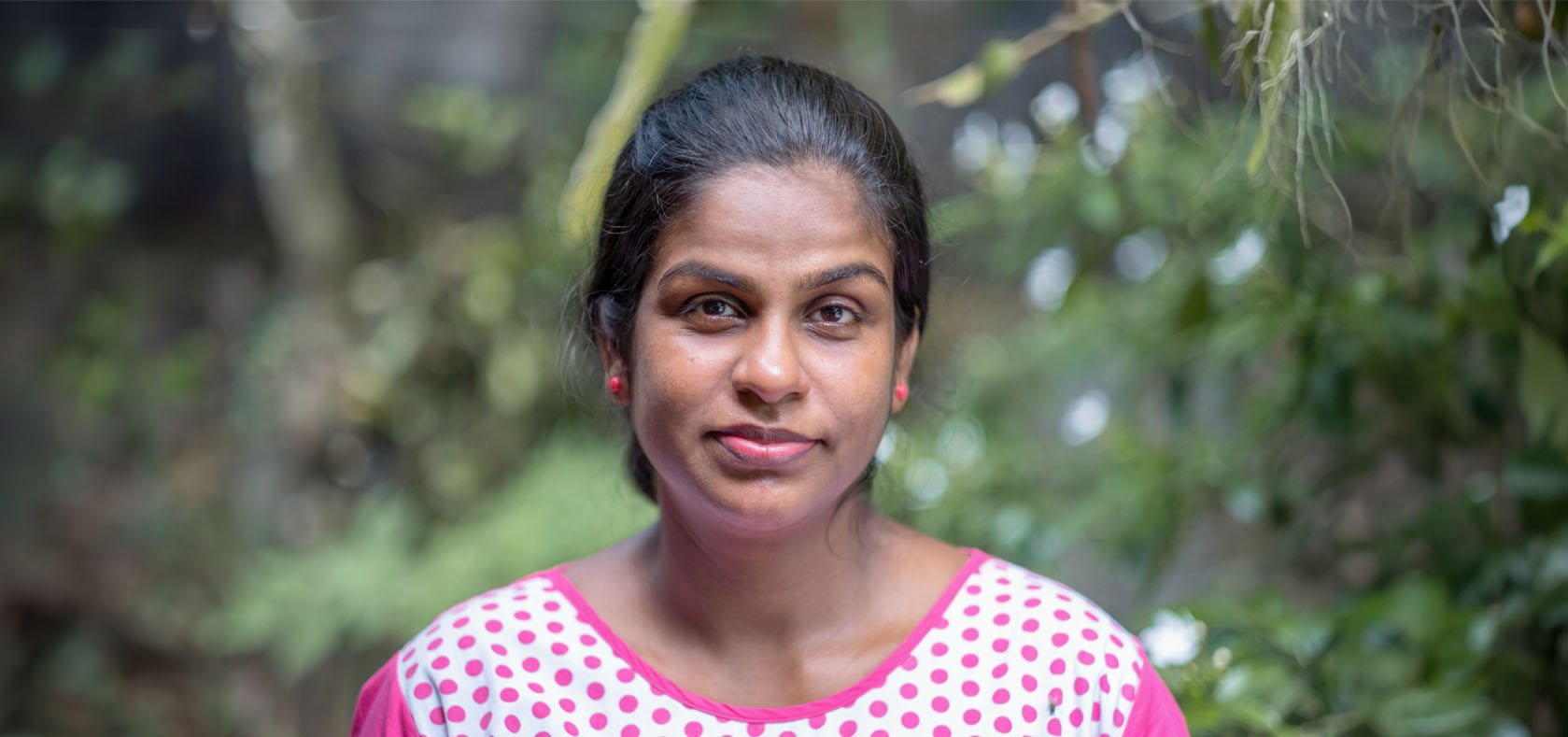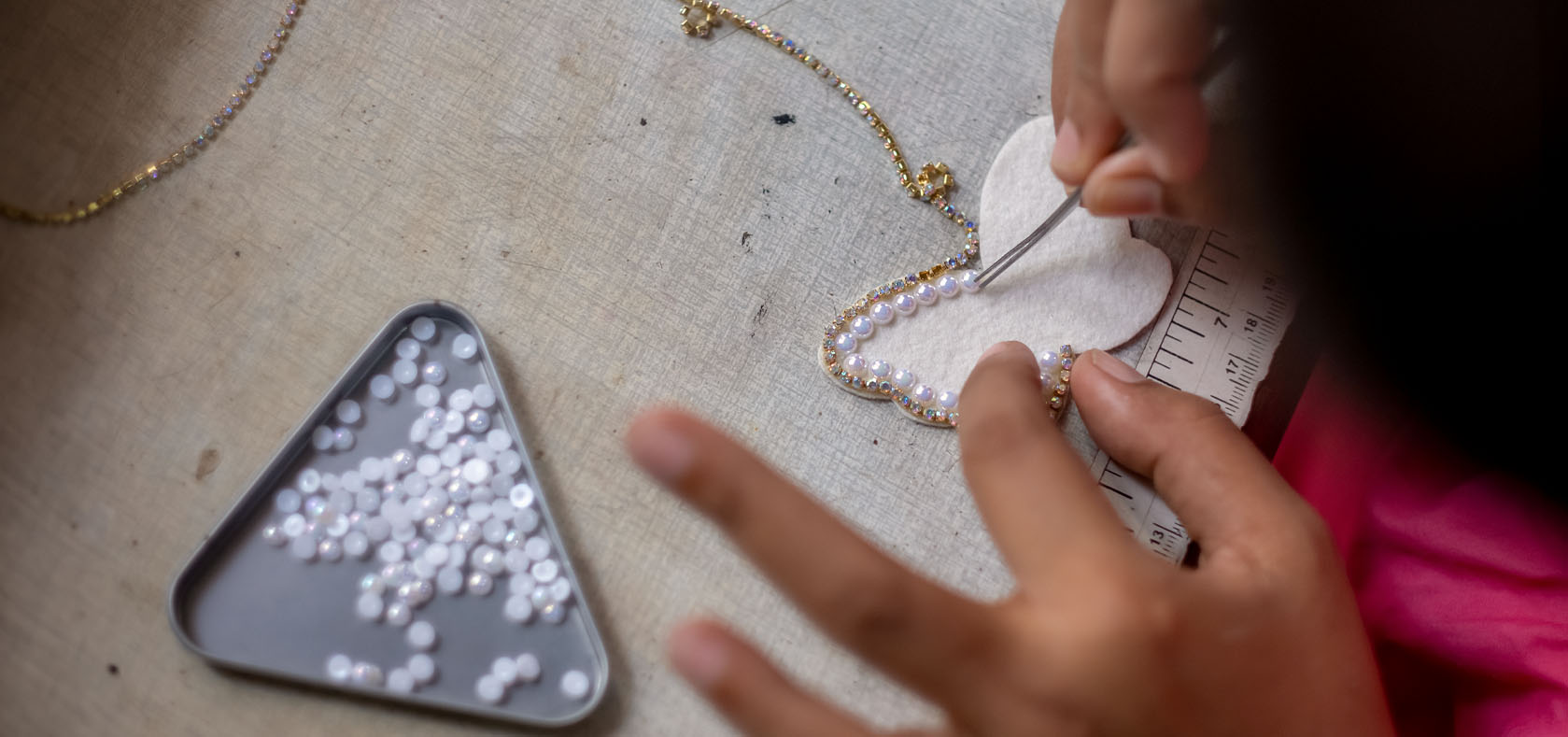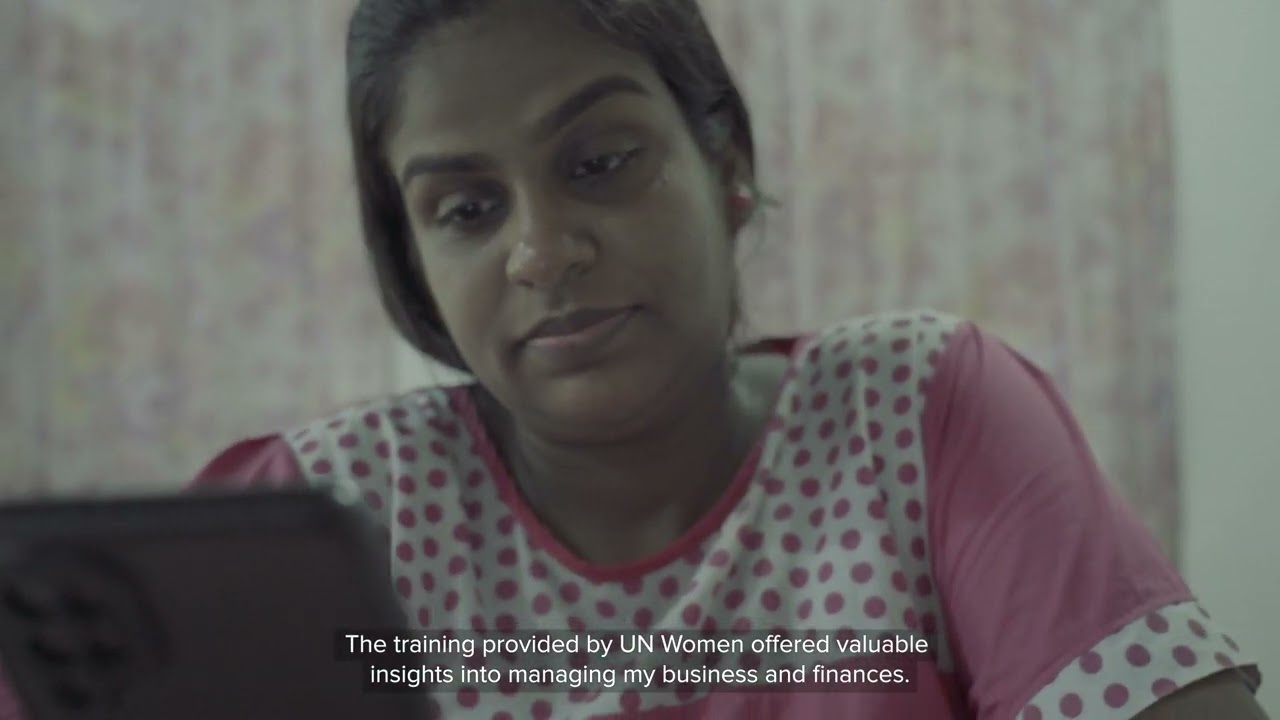In the words of Devi Dismika Dayanjali: “Women have much to bring to the table just as men do”
Date:

Devi Dismika Dayanjali, 33, is an entrepreneur from Kesbawa, a suburb in Colombo, Sri Lanka. UN Women’s project ‘Empowering Women in Crisis’ funded by the Government of Japan provides humanitarian assistance for women most affected by Sri Lanka’s socioeconomic crisis. Through the project, Dismika and over 600 other women-led micro-enterprises have received support to strengthen their business resilience and livelihoods.

I am immensely proud to showcase my brainchild, Sparkle Beauty, a business born from a hobby that came about from my creative vision, and one that is staying afloat even amidst an economic crisis.
I acquired the skills for my business during school days when my passion and active engagement in extracurricular activities cultivated my fascination with art and creativity.
Crafting intricate patterns and designs, my artistic capabilities find expression through every piece I create and offer. I am enthralled by floral, mystique and ethereal designs, as I generally try to incorporate what I would look for in a product when I create my own pieces. Regardless, it is not just the act of selling something that excites me; rather, it is a moment of awe in which I can look at something and know I have made it with my own hands.
The beginning of Sparkle Beauty emerged not only from creativity but also from a need for independence. I firmly believe that a woman should not depend solely on her husband, and she has as much to bring to the table as they do—regardless of what society leads us to believe.

The economic crisis posed significant challenges for us as a family—sourcing raw materials became a hurdle, not only for my business, but also for necessities including food.
During this time, resourcefulness became my ally as I took to innovation, utilizing offcuts from friends to sustain my designs. Amid these trials, the support from UN Women became invaluable.
Their training in management, financial and capital planning, bookkeeping and marketing strategies provided the missing pieces to navigate and sustain a business in this volatile economic climate. The ration packs they offered helped balance monthly expenses, allowing me to invest in business growth.
Entrepreneurship can be immensely empowering for women, but within our socioeconomic status, we do not always have access to resources and knowledge to be self-sufficient. All this changed with UN Women’s trainings.
I was excited to put the information I had acquired to practical use, and I am thrilled to say that we are reaping the benefits of being a part of this programme. Something useful I learned was to avoid relying on loans to sustain a business; I am now aware of the dangers and pitfalls this poses to the longevity of a business, and we are careful not to resort to quick-fix measures.
My days are meticulously planned to nurture both my family and my business. I dedicate my mornings to crafting, while my husband aids deliveries —a well-coordinated effort born from our shared determination, vision and years of practice, bound together by our loyalty and support to each other.
I am an ambitious person, and I have realistic plans to ensure they materialize. As my business continues to grow, I am working towards a dedicated crafts room, personalized designs, and eventually, a storefront. I am also aware, however, that this crisis in Sri Lanka is here to stay for the foreseeable future, but I am determined to survive through it and ensure the same for my family.
My commitment echoes in my advice to other women. Dedicate time to generate an income. It holds profound significance for society and oneself. My journey embodies resilience, advocating for financial freedom and showcasing the power of dedication and familial support in navigating life's challenges.”
